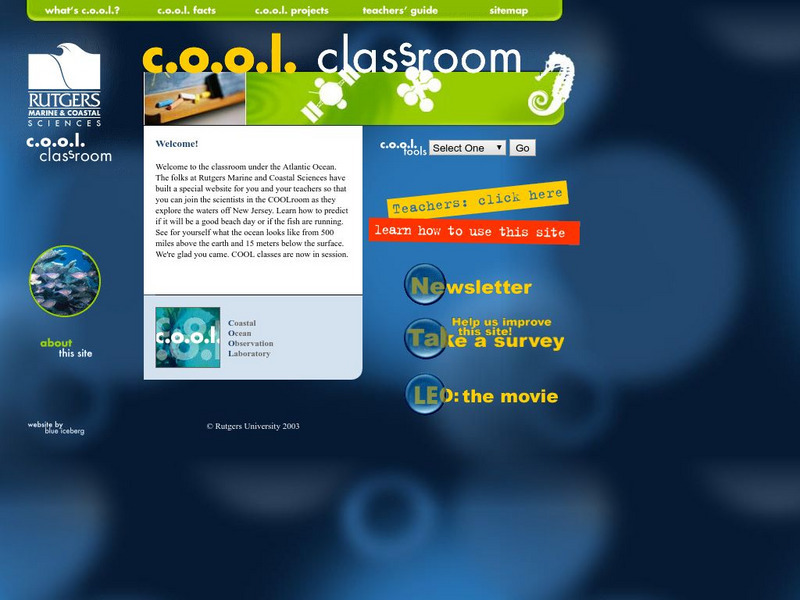History of Computing Science
History of Computing Science: Past Computer History
An in-depth lecture and PowerPoint slideshow on the history of computing can be found here. It gives an overview of the advances in science that made desktop computers possible, starting with the invention of counting, to the...
Science Struck
Science Struck: Events That Led to the Invention of the Airplane
Discover the history of the first airplanes and flying machines, and how the Wright brothers constructed their first successful airplane.
Smithsonian Institution
National Air and Space Museum: Exploring the Planets: Early Discovery
This section of the exhibition gives the history of the discovery and study of space starting with the Greeks and Romans through to the early 1900's.
American Chemical Society
American Chemical Society: Directory of National Historic Chemical Landmarks
A database of milestones and accomplishments in the field of chemistry. The information is organized in four ways: by year, by category, by U.S. state, and by country.
Children's Museum
The Children's Museum of Indianapolis: Fireworks of Glass: The Art of Dale Chihuly
Explore the ancient process of glassblowing and the science behind the art. Students will create their own sculptures, plan installations, and study renowned artist Dale Chihuly.
Science Struck
Science Struck: Who Invented the Thermometer?
Read about the history of the thermometer and the different types of thermometers and temperature scales that were invented.
Untamed Science
Untamed Science: Biology: Evolution: History of Life: The Cambrian Explosion
Learn about the Earth's evolutionary history during the Cambrian period. [3:25]
CK-12 Foundation
Ck 12: Life Science: 4.12 Geologic Time Scale
Understand the history of the Earth through geologic time.
CK-12 Foundation
Ck 12: Earth Science: Formation of Earth Study Guide
Understand the formation of the Earth using this study guide.
American Geosciences Institute
American Geosciences Institute: Earth Science Week: Third From the Sun
Students learn about the history of Earth imaging, the Landsat satellite program. They develop interpretation skills as they play a game that involves inferring the subjects of various Landsat images.
Science Struck
Science Struck: Famous Women Scientists From Around the World
Gives brief information about the lives and accomplishments of famous women scientists from around the globe.
Science Museum, London
Science Museum Online Stuff: The First Flight
An excellent article about how Orville and Wilbur Wright's interest in flight developed and led to the first airplane flight.
Other
Eureka Science: Cloning
Read this short article to find out about the history of cloning and genetic engineering. Continue on to the next page to find out how cloning is done. Simple terms and fun animations make it easy to read.
Ducksters
Ducksters: History: Renaissance Science for Kids
Kids learn about science achievements during the Renaissance. Explore the inventions and technology of this time in history.
CK-12 Foundation
Ck 12: Earth Science: Climate Change in Earth History Study Guide
This comprehensive study guide covers the main terms and concepts needed for an earth science unit on climate change. Review questions are included at the bottom of the study guide.
CK-12 Foundation
Ck 12: Earth Science: Earth History and Clues From Fossils Study Guide
This comprehensive study guide covers the main terms and concepts needed for an earth science unit on what we can learn about the early earth from fossils. Review questions are included at the bottom of the study guide.
American Museum of Natural History
American Museum of Natural History: O Logy: What's the Big Idea? Paleontology
Snapshot reference on paleontology explains how the fossil record drives this area of science.
Smithsonian Institution
National Air and Space Museum: Exploring the Planets: Ancient Times & the Greeks
In ancient times only five planets were known: Mercury, Venus, Mars, Jupiter, and Saturn. Learn about Greek astronomer Ptolemy's theory for the solar system that was to survive for fourteen centuries.
BBC
Bbc: The Lost Pyramids of Caral
A transcript of a TV documentary about the ancient American civilization found in Caral, Peru. The show features interviews with all three members of the original archaeological team that dated Caral to 2600 B.C. There is a nice...
Other
Rutgers Marine & Coastal Sciences: Cool Classroom
Students and teachers can explore the work of marine scientists and observe the ocean from their computers. Learn about Rutgers Coastal Ocean Observation Laboratory, discover why oceanography is important, and see what life is like in...
PBS
Pbs Teachers: Scientific American: Science Safari: The First People
Emulate the work of archaeologists in South Africa attempting to solve the riddles of human evolution by inferring a person's height from the length of one bone. Identify and communicate present-day rituals through ancient art techniques.
Other
Canal Kids: Saude (Health for Kids in Portuguese)
A very informative and fun site children can use to learn about taking care of their health. In addition to information about the body, the senses, the brain, vaccines, and healthy habits, the site provides a brief history of medicine....
US National Archives
Docsteach: Apollo Soyuz: Space Age Detente
In July 1975, the first joint Soviet-American spacecraft docking took place. In this activity, students will analyze the way that government officials in both the United States and the Soviet Union valued space exploration for more than...
Other
Odyssey of the Mind: Digging for Clues
Students explore archeology, dating methods, and the skills and technology needed to be an archeologist through the three activities provided. Activities require research of a historical period, class discussion and creative thinking.













